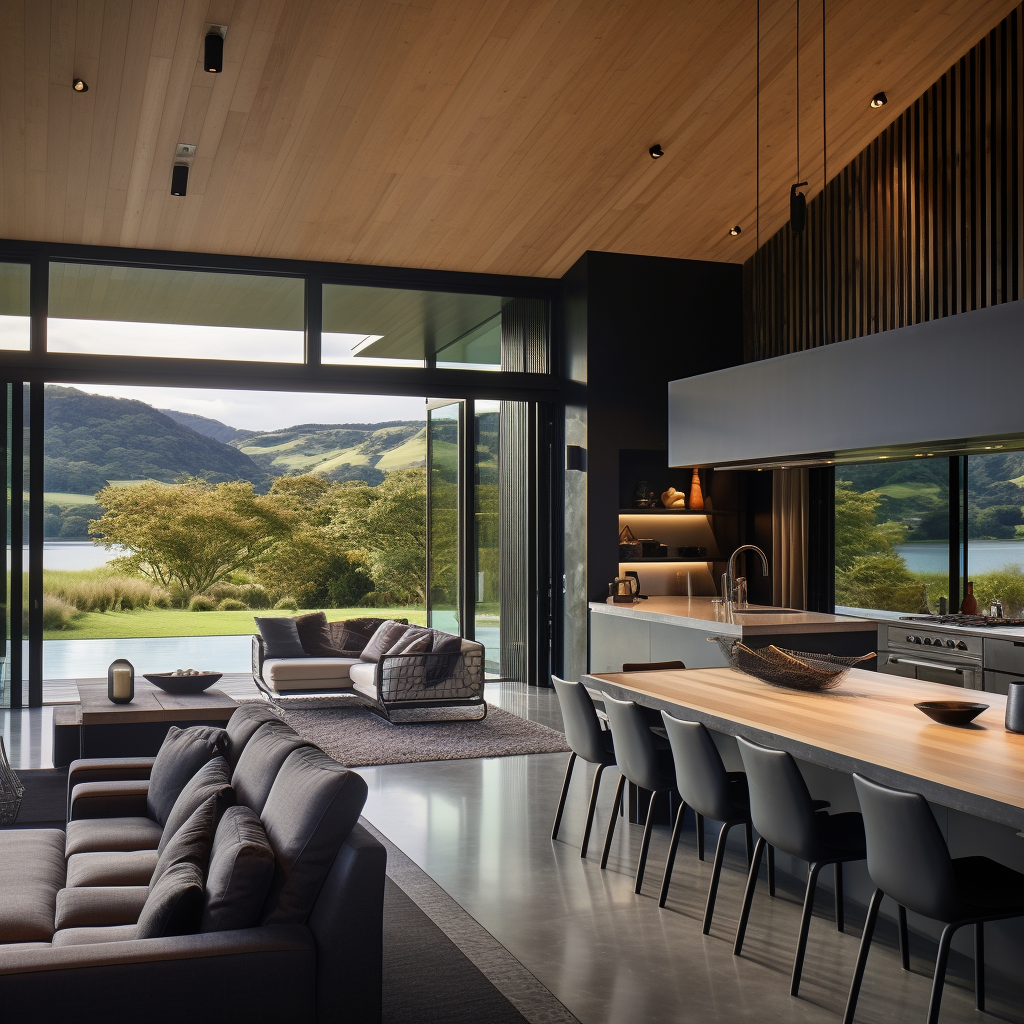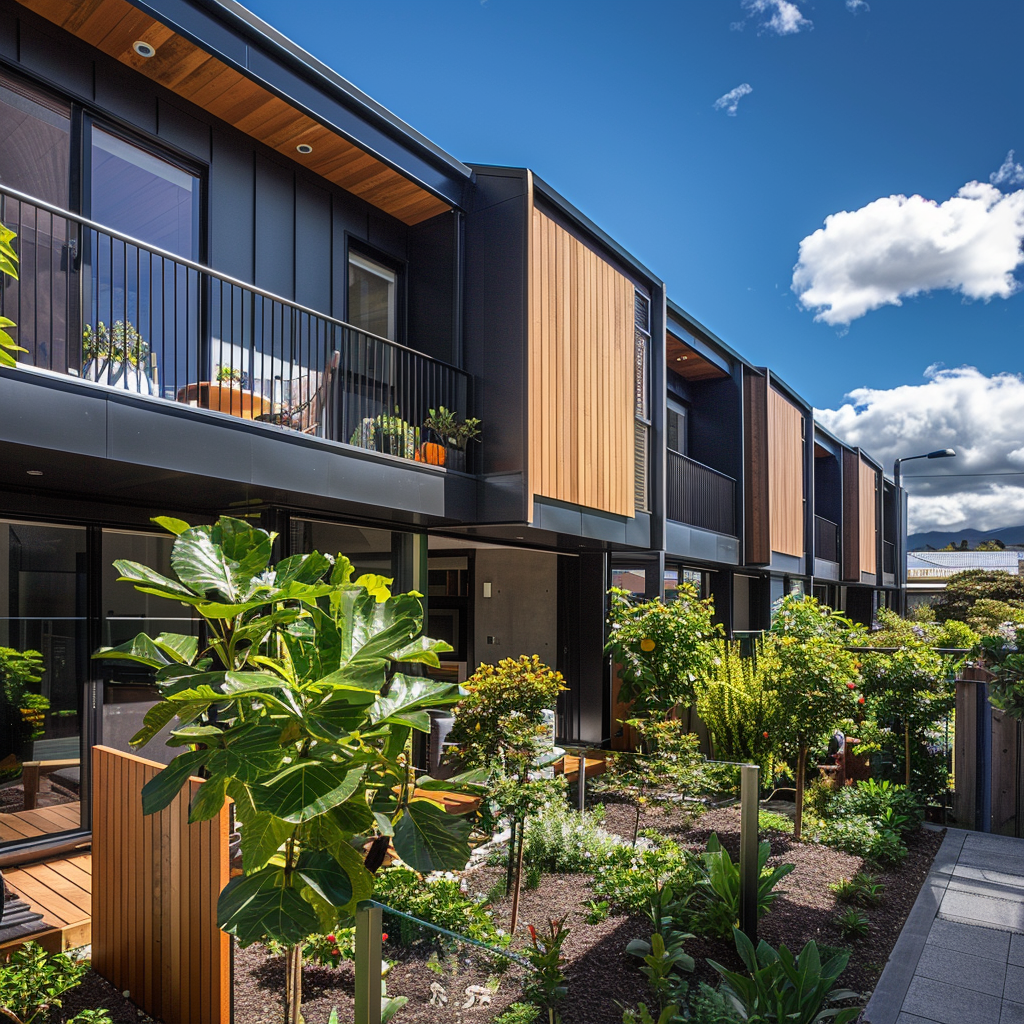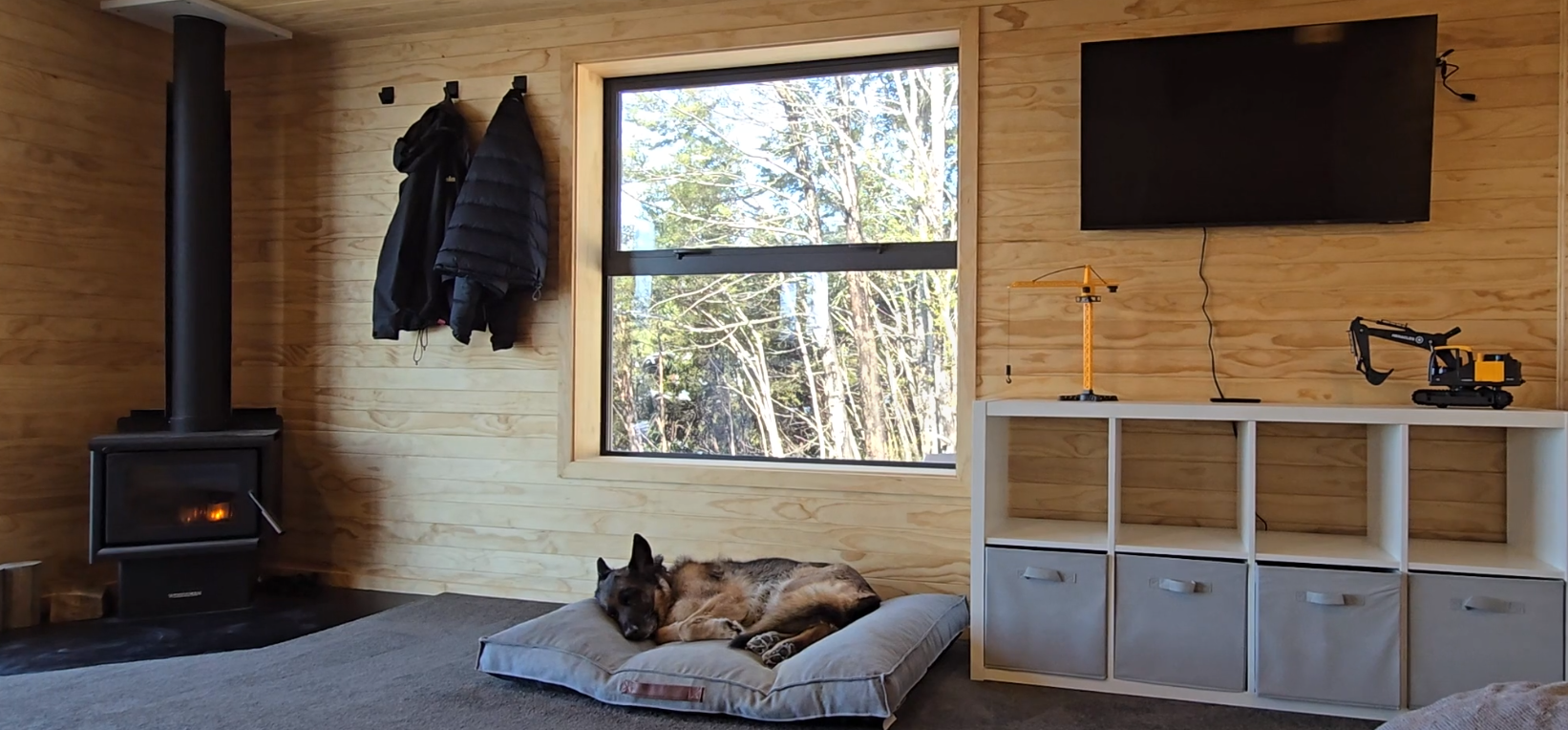Types of Interior Cladding Used in NZ Properties with Pros and Cons
Interior cladding is a vital component of any Kiwi home, providing not only aesthetic appeal but also functional benefits. In Aotearoa New Zealand, homeowners have a variety of cladding options to choose from, each with its own set of advantages and drawbacks. This comprehensive guide delves into the most popular types of interior cladding used in New Zealand properties, examining their aesthetic qualities, water tightness, performance during earthquakes, and ease of repair.
Painted Plasterboard (GIB): A Closer Look
Aesthetic Appeal
One of the main reasons why painted plasterboard, also known as GIB, is a favourite among Kiwi homeowners is due to its aesthetic versatility. It provides an effortlessly smooth and unblemished finish that can act as a blank canvas for your interior design aspirations. Whether you're leaning towards a contemporary minimalist style or gravitating towards classic elegance, GIB can seamlessly complement any decor theme you choose.
Note: The clean lines and simplicity of GIB make it a fantastic option for creating a modern and sleek interior.
Water Tightness
When it comes to water resistance, GIB might not be the first choice. It isn't inherently water-resistant, which means that it's best used in dry areas of your home like living rooms or bedrooms. However, don't let this deter you from using GIB in moisture-prone zones like bathrooms and kitchens - it just requires some extra care. Waterproofing measures such as the use of appropriate sealants or paints can help protect the plasterboard against potential water damage.
Performance in Earthquake
Living in New Zealand means living with the reality of seismic activity. As such, earthquake performance is an essential factor when choosing cladding materials for your home. You'll be pleased to know that GIB takes this into account; its flexibility allows it to handle minor movements during an earthquake without sustaining significant damage.
Tip: Regular inspections and maintenance can further enhance the longevity of GIB during seismic activities.
Ease of Repair
Life happens, and so do knocks and scratches on your walls over time. When it comes to repairs, GIB shines through with its ease and simplicity. Patching damaged areas is straightforward - all it takes is some filling compound applied with precision. Once dry, a quick sanding will smooth the patch, readying it for a new coat of paint. This repair process makes GIB a practical and user-friendly option for maintaining the beauty of your home's interior over time.
Timber Panelling
Aesthetic
Timber panelling is a classic choice that brings charm and sophistication to any room. The natural grain of the wood imparts a unique, organic beauty that cannot be replicated by synthetic materials. Whether your aesthetic leans towards rustic charm or modern elegance, timber panelling offers a wide variety of looks. You can choose from different types of wood like pine, oak or maple, each with their own distinctive pattern and colour. Its versatility allows it to infuse warmth into a cosy living space or add a touch of class to your home office.
Water Tightness
When it comes to water resistance, timber panelling can hold its own given the right treatment. However, it's worth noting that this material may not be the best choice for spaces prone to high moisture levels like bathrooms or basements unless it's been properly sealed. Sealing not only enhances water resistance but also protects the wood from humidity and prevents warping or rotting over time.
Performance in Earthquake
Living in New Zealand, earthquake resilience is definitely a factor worth considering while choosing your interior materials. Fortunately, timber panelling performs admirably under seismic conditions due to its inherent flexibility. Unlike more rigid materials that may crack or break under stress, timber's natural elasticity allows it to absorb and distribute the forces exerted during an earthquake, reducing potential damage.
Ease of Repair
One of timber’s advantages is its ease of repair. Minor scratches and dents can often be remedied by a simple sanding and refinishing process. However, matching the original colour and grain of older timber panels can sometimes present a challenge. It's recommended to consult a professional for substantial repairs to ensure a seamless blend with the existing paneling. Despite this minor drawback, timber remains a resilient and long-lasting option for those seeking an authentic touch in their home decor.
Wallpaper
Aesthetic
Wallpaper offers an array of patterns and textures allowing for personal expression in home decor. Whether you're after a bold statement or subtle texture, wallpaper has you covered.
Water Tightness
Typically not suitable for wet areas unless specifically designed as such, wallpaper should be reserved for drier rooms within the home.
Performance in Earthquake
The performance of wallpaper during earthquakes is fair; it may peel or bubble if there's structural movement.
Ease of Repair
Replacing sections of wallpaper is relatively easy, though matching the patterns perfectly might require some effort.
Tiled Walls
Aesthetic
Tiled walls provide a durable and elegant finish that's particularly popular in kitchens and bathrooms. Tiles offer versatility in terms of colour, size, and pattern.
Water Tightness
Tiles excel in water tightness when properly installed and grouted, making them ideal for wet areas within the home.
Performance in Earthquake
During seismic events, tiles can crack or become loose. Their rigidity makes them less forgiving under stress compared to other materials.
Ease of Repair
While individual tiles can be replaced if damaged, finding an exact match for older tiles may be difficult due to discontinuations or dye lot variations.
Fibre Cement Panels
Aesthetic
Fibre cement panels offer a modern look with their minimalistic design. They're often chosen for their sleek appearance that fits well with contemporary architecture.
Water Tightness
These panels provide good water resistance, especially when treated forms are used. They're suitable for use in various environments around the house.
Performance in Earthquake
Fibre cement has moderate flexibility; it's less adaptable than timber but still performs adequately during seismic activity.
Ease of Repair
Replacing damaged panels is fairly straightforward but requires attention to detail to ensure consistency across the wall surface.
Brick or Stone Veneer
Aesthetic
Brick or stone veneer brings rustic charm or industrial vibes into a property. It creates an eye-catching feature wall that stands out as an architectural highlight.
Water Tightness
With proper sealing, brick or stone veneer can provide excellent water resistance. However, maintenance is key to preserving its integrity over time.
Performance in Earthquake
These materials can be prone to cracking during earthquakes due to their rigid nature and heavy weight.
Ease of Repair
Repairing brick or stone veneer requires masonry skills and can be more complex compared to other cladding types. Matching existing materials may also be challenging.






